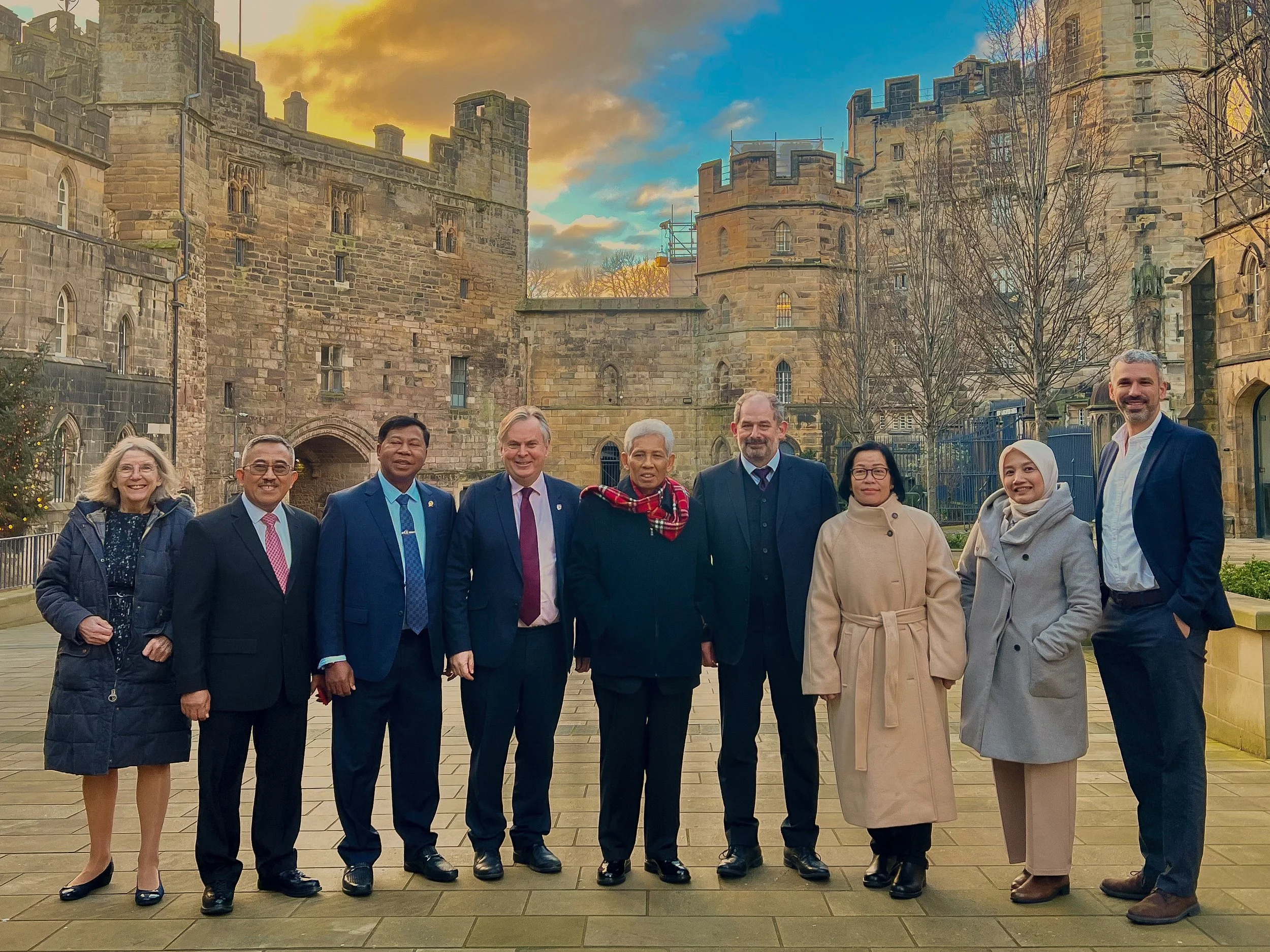Law and conservation join forces in a collaborative learning experience to promote environmental remedies through law enforcement
Lancaster, 18 December 2023 - The Indonesian Supreme Court - represented by the Indonesia National Environmental Working Group and Indonesian non-government organization ICEL (Indonesian Center for Environmental Law) - met with Lancaster University environmental conservation and legal researchers, alongside other visiting experts, to explore judicial responses to environmental harm in the UK, Indonesia and around the world.
Held against the fitting backdrop of Lancaster Castle - once a prison and now the seat of Lancaster Crown Court - the collaborative learning workshop, entitled “Responding to the Triple Planetary Crisis through Legal Remedies”, featured presentations from senior members of Indonesia’s judiciary on the opportunities and challenges of recent developments to environmental liabilities in the country.
Hosting the event, Lancaster University conservation social scientist and co-founder of Conservation-Litigation.org Dr Jacob Phelps said: “This is an enormous opportunity to share experiences and explore solutions to implementing effective legal responses to environmental harm. By drawing on examples from different jurisdictions, we hope to be able to inform a radical shift in how legal systems and courts respond to environmental harm, ensuring that offenders are held liable for their actions and with the ultimate goal of delivering a healthier environment for all.”
The workshop welcomed several guest speakers: visiting from Cardiff University, senior environmental lawyer Professor Valerie Fogleman led a presentation and discussion on the EU Liability Directive, while Carol Jones of the Environmental Law Institute joined virtually from Washington DC to share the US experience and present emerging cases.
To further the knowledge exchange between Indonesia and the UK, Mrs Justice Nathalie Lieven of the UK judiciary shared experiences of operationalising environmental remedies in the UK, while Dr Joana Setzer of LSE’s Grantham Research Institute on Climate Change and the Environment explored the parallels with the climate litigation movement and its potential to drive change for biodiversity.
The event represents a key step forward in expanding understanding of how existing laws can be used in response to cases of serious environmental harm, focused on the need for science-based responses and, crucially, the implementation of court-ordered remedies on the ground.
Also speaking at the event, Professor Christina Hicks and Dr James Fraser provided key examples from different sectors to highlight the scope of remedies required to actually redress illegal harm done to nature. These extend beyond monetary compensation to remedy wrongs, and also include actions such as recognition of rights, habitat restoration and apologies.
The workshop aimed to explore the challenges and opportunities in environmental case handling in Indonesia: Raynaldo Sembiring (ICEL) and Hon. Justice Bambang H. Mulyono provided an overview of climate litigation in the country and how judicial training is adapting in response to changing understandings of the environment and climate change, while Justice Prof. Takdir Rahmadi presented Indonesia's environmental liability framework and its implementation under the Supreme Court regulation.
To see theory put into practice, a site visit to an important area of ancient woodland in Cumbria that had been illegally damaged by the landowner explored both the successes and limitations of the environmental enforcement order, supporting and informing the development of future judicial responses in other jurisdictions.
Professor Takdir Rahmadi, Justice of the Supreme Court of the Republic of Indonesia, commented “We are thrilled that members of the Indonesian National Environmental Working Group have been invited to participate in this Collaborative Learning workshop at the Lancaster Environment Center. This forum has allowed us not only to share the results of our works with other participants, but to learn from them.”
Concluding, Raynaldo G. Sembiring, Executive Director of Indonesian Center for Environmental Law, added "This collaborative workshop is a strategic initiative to strengthen our efforts in using law enforcement as a tool to promote environmental restoration, recognizing the importance of collaboration between civil society and the state in tackling our current planetary crisis.”
Partly funded by the UK Government through the Illegal Wildlife Trade Challenge Fund, part of the UK Biodiversity Challenge Funds

